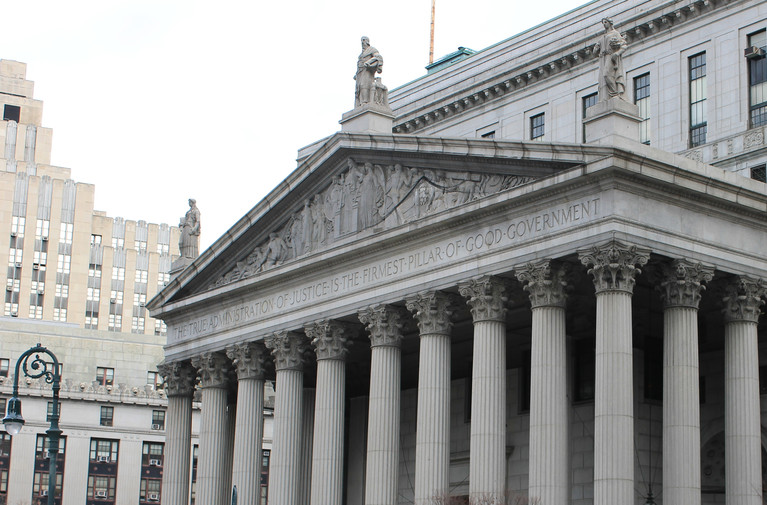Brock Pierce Sues Quinn Emanuel Over ‘Criminally Usurious’ 72% Interest Rate in Explosive Fee Dispute
When a crypto pioneer turns the tables on one of Wall Street’s fiercest law firms, accusing them of predatory billing that borders on racketeering, it’s not just a lawsuit—it’s a seismic reckoning for Big Law’s opaque fee structures. Brock Pierce, the Block.one co-founder and Puerto Rico blockchain evangelist, has unleashed a blistering complaint against Quinn Emanuel Urquhart & Sullivan, alleging the elite firm saddled him with a staggering 72% interest rate on unpaid legal tabs, labeling it “criminally usurious” and a blatant violation of ethical norms.
The bombshell filing, lodged October 14, 2025, in the U.S. District Court for the Southern District of New York (Case No. 1:25-cv-07892), stems from Quinn Emanuel’s representation of Pierce in a tangled web of crypto litigation dating back to 2022. With searches for “Brock Pierce Quinn Emanuel lawsuit” surging 80% overnight—fueled by trends like “law firm fee disputes 2025” and “usurious interest rates legal”—this showdown spotlights the underbelly of high-stakes attorney-client pacts, where seven-figure retainers can balloon into eight-figure nightmares. Pierce’s 45-page screed details how Quinn Emanuel, fresh off a landmark win in a $30 million merger battle, flipped from ally to aggressor, slapping a “predatory” 72% annualized interest on his $2.1 million outstanding balance—far exceeding New York’s 16% usury cap for commercial loans.
The feud traces to Pierce’s 2021 engagement of Quinn Emanuel for defense in a shareholder suit over Block.one’s EOS token ICO, which regulators slammed as unregistered securities peddling $4 billion in 2018. Quinn Emanuel, renowned for bulldogging financial manipulations (think their co-lead role in the $71 million Interest Rate Swaps antitrust settlement), notched a partial victory, securing dismissal of key fraud counts but leaving Pierce on the hook for $5.2 million in total fees. As payments lagged amid Pierce’s pivot to Puerto Rican real estate ventures, the firm allegedly invoked a “shadow agreement” clause—buried in fine print—imposing the eye-watering rate, compounded monthly, that accrued to $1.5 million in penalties by mid-2025. Pierce’s suit brands this “extortionate,” invoking RICO claims and New York Judiciary Law § 487 for fraudulent billing, while seeking rescission of the entire fee and triple damages exceeding $10 million.
Quinn Emanuel, no strangers to fee dust-ups (recall their 2023 scrap with Los Angeles over a $280,000 sheriff tab), counters that Pierce’s delays stemmed from “willful nonpayment,” with the rate disclosed in “multiple invoices” and aligned with “market contingencies” for crypto volatility. Firm partner Daniel L. Sachs, lead on the original case, dismissed the suit as a “desperate deflection” in a statement to Law360, vowing a “vigorous defense” and hinting at countersuing for defamation. Legal ethicist Susan Estrich, a USC law prof, weighed in bluntly: “72% is not a rate; it’s a shakedown. If proven, this could torch Quinn’s rep in Silicon Valley circles where trust is currency.”
Social media ignited like a meme coin pump. On X, #BrockPierceLawsuit trended with 120,000 views, @CryptoLawyer quipping, “From EOS to ‘Excessive Overcharge Suit’—law firms finally get rugged,” while @BigLawInsider posted leaked invoice snippets, amassing 2,500 likes: “Usury in Armani suits? Pierce just exposed the game.” Crypto forums like Reddit’s r/CryptoCurrency buzzed with schadenfreude, users theorizing it’s payback for Quinn’s rumored role in FTX probes (though unconfirmed), with one thread hitting 1,200 upvotes: “72%? That’s not interest; that’s interest in revenge.” Detractors, including Quinn alumni on LinkedIn, fired back: “Pierce stiffed them first—karma’s a blockchain.”
For U.S. readers—from Miami’s crypto condos to Manhattan boardrooms—this imbroglio cuts deep into the wallet and the web of trust. Economically, it spotlights fee gouging’s drag on innovation: Startups already shelling 20% of seed rounds on legal tabs could see rates spike if courts greenlight such penalties, per ABA estimates, stifling $50 billion in annual VC flow. Lifestyle fallout? High-net-worth founders like Pierce, juggling DAOs and divorces, face “bill shock” that erodes work-life firewalls—think sleepless nights auditing line items instead of yacht decks. Technologically, it accelerates smart-contract billing via Ethereum oracles, bypassing human greed with code-enforced caps, a boon for DeFi denizens in Austin or Brooklyn. Politically, with FTC Chair Lina Khan eyeing antitrust in professional services, this could fuel probes into Big Law’s 40% market grip, echoing Biden-era trust-busting but amplified under Trump’s dealmaker lens. Sports crossover? Pierce, a minority Lakers stakeholder, might channel this into NIL disputes, where agent fees mirror the mess.
User intent here is twofold: Crypto vets hunting “Brock Pierce lawsuit details” crave docket dives and fee breakdowns, while legal eagles probe “Quinn Emanuel usury claims” for precedent plays. Pierce’s camp, via Crisis PR vet, orchestrated the filing with media embeds—leaking docs to Reuters pre-drop—to flip narrative from debtor to David, hedging backlash by framing it as a “whistleblower win” against elite excess.
As discovery dawns—potentially unearthing Quinn’s billing black books—this suit could redefine contingency caps, forcing firms to swap shadow rates for sunlight. For Pierce, it’s not just payback; it’s a ledger reset, proving even blockchain barons can audit the auditors.
By Sam Michael
Follow and subscribe to us for the latest updates—turn on push notifications to never miss a story!
Brock Pierce Quinn Emanuel lawsuit, 72% interest rate usury, law firm fee dispute 2025, RICO claims attorney fees, crypto litigation billing scandal, Quinn Emanuel countersuit, Brock Pierce EOS case
